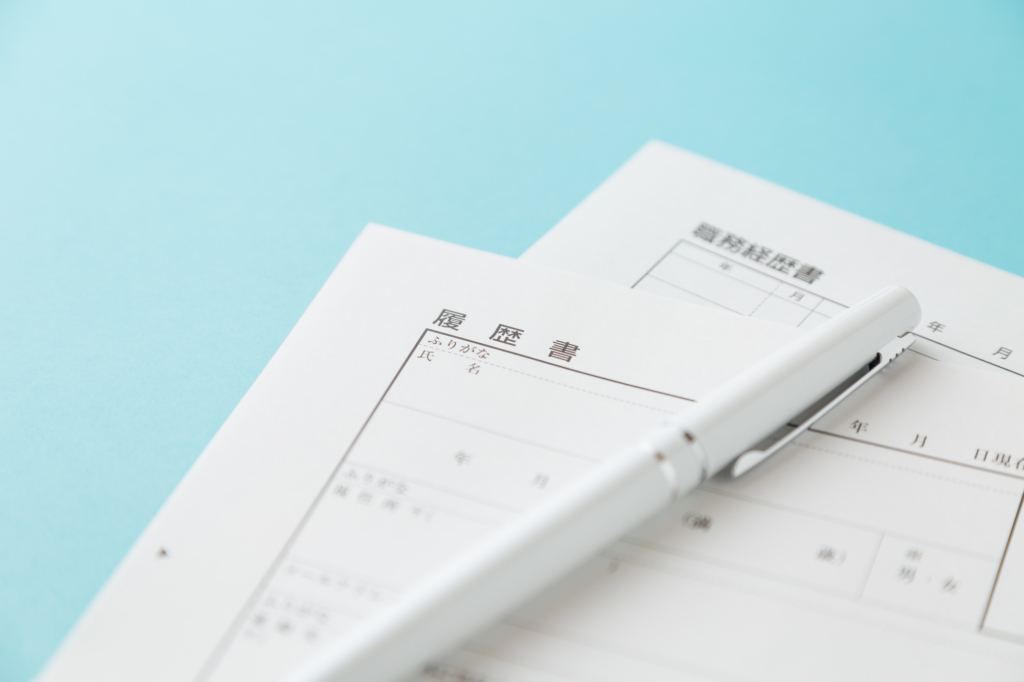Job hunting in Japan always includes submitting a resume, which details your academic background, work experience, any certifications you might have, reasons for applying, and more. A typical Japanese resume will also have a section for self-introduction (自己PR). Japanese companies pay close attention to it to make sure that a candidate is the kind of person they want working for them, so it’s important to promote yourself as best as possible in that section. In this article, we’ll discuss the best way to handle the self-introduction portion of a Japanese CV or an interview.
What Is the Self-Introduction Section of a Japanese Resume?

A resume is a document that you submit while job hunting, which details your academic background, work experience, skills, and other information. It’s an essential tool that companies use to screen candidates. A typical Japanese CV will include sections like Education, Professional Experience, Skills, and, notably, Self-Introduction where you have to promote yourself by describing your personality, strong points, and other things that will make you appear as an attractive candidate. Companies read through this section to ascertain what kind of person you are, what you can bring to the company, and if you’re the type of employee they’re looking for.
Things to Keep in Mind When Writing a Japanese Self-Introduction

In this section, we will discuss things to be mindful of when filling out the Self-Introduction portion of a Japanese resume.
Companies use self-introductions to judge whether a candidate is the right fit for their workplace. So, look over the job ad carefully and write something that will highlight the kind of abilities, experiences, achievements, and parts of your character that will make you look as appealing as possible to that specific potential employer.
However, simply listing your strengths and abilities won’t be enough. You also need to back up your claims by detailing your relevant experiences and achievements. In short, you have to be specific in order to be credible. Below, we’ve listed a few things to include in your self-introduction that should resonate with a recruiter.
• Emphasize your strong points and abilities that will make you sound like the perfect candidate for the job.
• Back up your claims by detailing specific and relevant accomplishments or work evaluations.
• Write about all the effort and labor you put into overcoming the obstacles on the road to achieving your accomplishments.
• Write about how your strong points will be an asset to the company.
Follow the advice above and you’ll soon be writing self-introductions that Japanese companies will definitely take notice of!
Not All Self-Introductions Are Written

Filling out the Self-Introduction section of a Japanese resume does not mean you can sit back and relax. Once your resume passes the initial screening, you will be asked to do another self-introduction during the interview by answering questions like “What is your field of expertise?” or “How will you be an asset to the company?” This is your chance to really sell yourself to a potential employer, so make sure you are prepared for these sorts of interview questions.
It’s important to not just repeat what you wrote in your resume during the interview. Instead, talk briefly about specific experiences that illustrate your expertise, how those experiences can be an asset to the company, and what you’d like to achieve as their employee.
That being said, make sure to not go overboard and bombard the interviewer with story after story about your triumphs and accomplishments. If you do it too much, they will lose their appeal and take the interviewer’s interest with them.
Effective Writing Tips for Self-Introductions That Will Help You Land That Job!
Recruiters read through self-introductions to assess how a candidate can be an asset to the company in the role that they’re applying to. More specifically, they want to know what kind of a person you are and what kind of roles you hope to fill if hired. By including that kind of information in your self-introduction, you improve your chances of your resume making it past the initial screening. Below, we’ve included a few examples of well-written self-introductions divided by specific industries. We hope they’ll provide useful tips for when you’re writing your own self-promotion.
• Hotel Front Desk Staff
My strong point is my attention to detail when it comes to hospitality. The hotel I’m currently working at sees a lot of foreign guests from all over the world. Here’s an example of how I provide the most high-quality service possible to people with vastly different needs and character traits: I check the reservation list to confirm what country they come from so that I can greet them in their native language during check-in or prepare a custom map of local restaurants popular with people from their country. I believe that constant attention to details like this is the key to helping make each guest’s stay at the hotel as enjoyable as possible.
Thanks to this, I was awarded the Best Front Staff Award, which is based on customer surveys, three years in a row since 2017. I can assure you that I will bring the same kind of dedication and meticulousness to your company and make the happiness of your guests my priority.
• Corporate Salesperson
I’m currently employed at a computer vendor where I’m responsible for overseeing 18 companies, including a major clothing manufacturer. I met 115% of my sales quota for the first half of the year, making me the most successful salesperson in the company out of 38 other people in similar positions. I believe the key to my success is thoroughly grasping the needs of the customer. When I got word that a major food manufacturer was behind on their digitization, I personally went to talk to them, assessed their needs, then provided them with specific figures showing how much they could gain using our computers. In the end, I acquired a new client and managed to increase sales.
I would like to use my skills at properly assessing a customer’s needs to acquire more clients for your company.
• Web Designer
At my previous company, I was responsible for website design. In one year’s time, I was responsible for a 110% increase in orders for our services, which I credit to my ability to think ahead and meticulously plan out every step of the design process and beyond. For example, I actually conducted market research while designing websites, predicted post-launch traffic, set up a periodical evaluation scheme, and provided other thorough follow-up services. This has earned me our clients’ trust which in turn led to the website operations running more smoothly, resulting in an increase of orders. I’m certain that my focus on results and my ability to view the entirety of the design process can be an asset to your company.
A Good Japanese Resume Starts With a Proper Self-Introduction
Companies in Japan take self-introductions very seriously, so knowing how to do them right from start to finish can be what ultimately decides whether you land your dream job or not. We hope that the tips in this article about composing a persuasive self-introduction that highlights the sort of skills a potential employer is looking for will help you while job hunting. Good luck!
If you want to give feedback on any of our articles, you have an idea that you’d really like to see come to life, or you just have a question on Japan, hit us up on our Facebook!
The information in this article is accurate at the time of publication.

